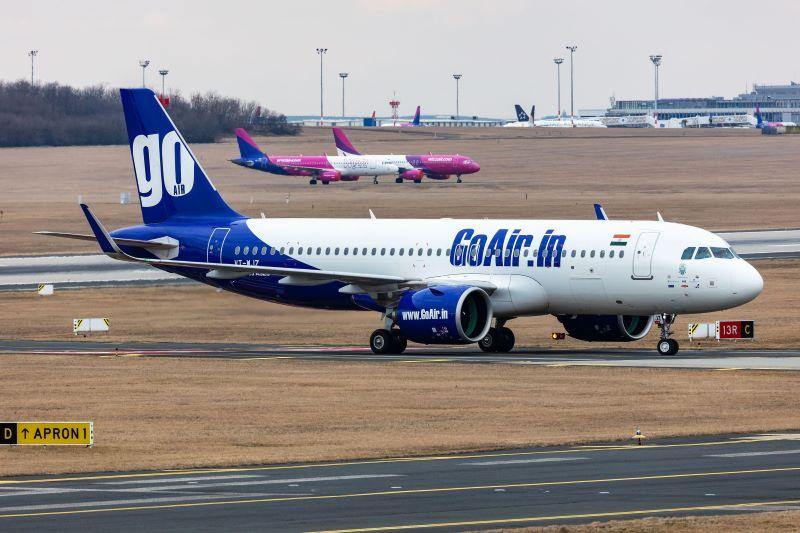
Indian carrier Go First has filed for bankruptcy protection, blaming long-running problems with its Pratt & Whitney engines for causing financial difficulties it could not overcome.
The LCC said it filed an application with India’s National Company Law Tribunal (NCLT) for resolution under section 10 of the Insolvency Bankruptcy Code. Once the NCLT processes the application, it will appoint an interim resolution professional to take over and operate the company.
Go First canceled all of its flights scheduled May 3-5, according to a notice on its website.
The airline said it took this step due to the increasing number of aircraft it has had to take out of service due to issues with the Pratt & Whitney geared turbofan engines which power its Airbus A320neo fleet. Go First now has 25 aircraft grounded—about half its fleet—because of the engine problems and delays in repairing them or obtaining replacements, the carrier said.
The Pratt & Whitney engine issues have affected many other carriers that use them on their A320neo-family fleets. Several airlines have had to ground some aircraft due to lack of replacement engines, although Indian airlines IndiGo and Go First appear to have been the hardest hit.
Go First said it had 7% of its fleet grounded due to engine problems in December 2019, and this rose to 31% in December 2020 and 50% by December 2022.
The carrier estimates it has lost INR108 billion ($1.3 billion) in revenues and additional expenses due to the engine-related groundings. The airline’s backers have infused significant amounts into the carrier over the past three years, and the government has also provided emergency credit guarantees to keep the airline afloat. However, these have not been enough to offset the losses from the aircraft groundings, Go First said.
Go First said it sought arbitration on this matter through the Singapore International Arbitration Center. The carrier wanted compensation amounting to INR80 billion in addition to other relief measures.
According to the airline, an arbitrator appointed through the SIAC process ordered Pratt & Whitney to send Go First at least 10 serviceable spare engines by April 27, and a further 10 engines per month until December.
However, Pratt & Whitney has not complied with this directive, “nor provided any certainty with respect to the time frame for the provision of spare leased engines in the future,” the airline said.
If Pratt & Whitney did comply with the arbitrator’s directive, Go First would be able to resume full operations by August or September, the airline said.
Aviation Week reached out to Pratt & Whitney for comment but as of publication time has not received a response.
Data from CAPA and OAG shows that Go First has the fifth-largest share of weekly seats in the Indian domestic market, accounting for 6.8% of the total. IndiGo has the largest share, and the next three airlines are all part of the Tata Group.





